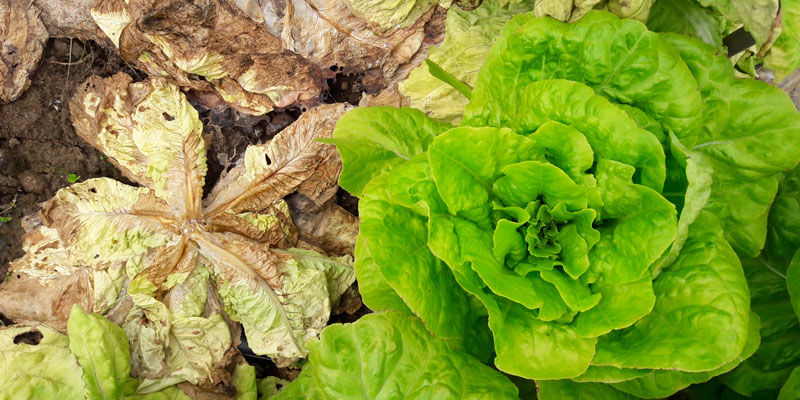
Breeding resistance to fungal pathogens in lettuce
Context
Fungal plant pathogens cause substantial economic losses on a global scale, reducing the yield and quality of agricultural products. In general, the vast majority of growers resort to repetitive applications of fungicides to overcome fungal diseases, bringing concerns over public health and environmental risk. Botrytis cinerea (causal agent of grey mould) and Sclerotinia sclerotiorum (causal agent of white mould) are closely related necrotrophic pathogens, each able to infect over 200 species, including lettuce (Lactuca sativa).
The research
In the Denby Lab, high-throughput approaches such as transcriptome profiling (time series and across diversity sets), gene regulatory network modelling, and quantitative trait mapping are used to identify candidate genes and genetic markers associated with resistance to these fungal pathogens. We are also using gene editing to generate lettuce varieties with increased disease resistance. We focus on identifying transcriptional regulators of plant immunity with the ultimate goal to develop durable and sustainable resistance in host plants.
Contact us
Centre for Novel Agricultural Products
cnap@york.ac.uk
+44 (0)1904 328776
Department of Biology,
University of York,
Wentworth Way,
York
YO10 5DD
Related links
Featured researcher

Katherine Denby
Professor Denby is interested in plant disease resistance and plant-pathogen interaction, and in novel approaches for enabling and enhancing breeding of improved crop varieties tolerant to environmental stress and disease.
Contact us
Centre for Novel Agricultural Products
cnap@york.ac.uk
+44 (0)1904 328776
Department of Biology,
University of York,
Wentworth Way,
York
YO10 5DD